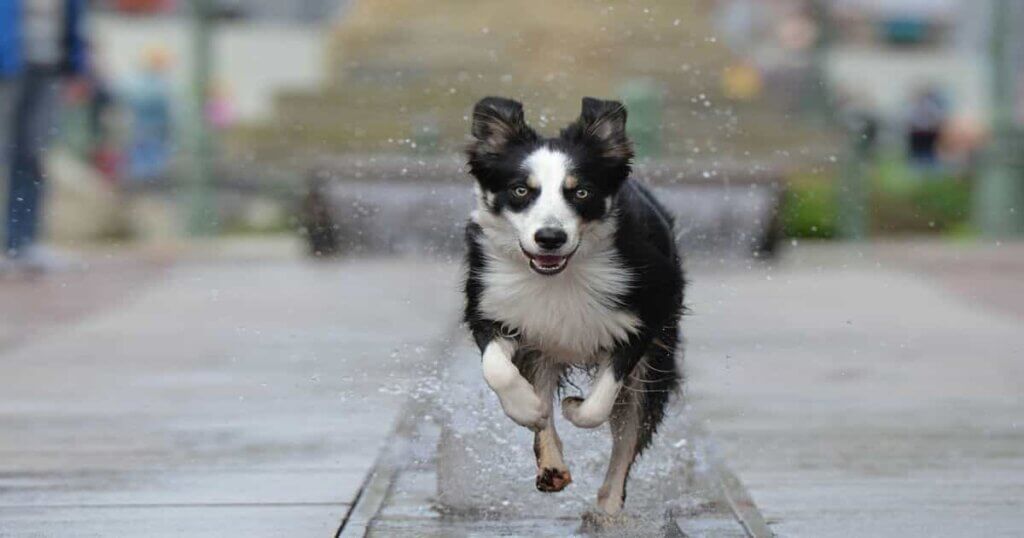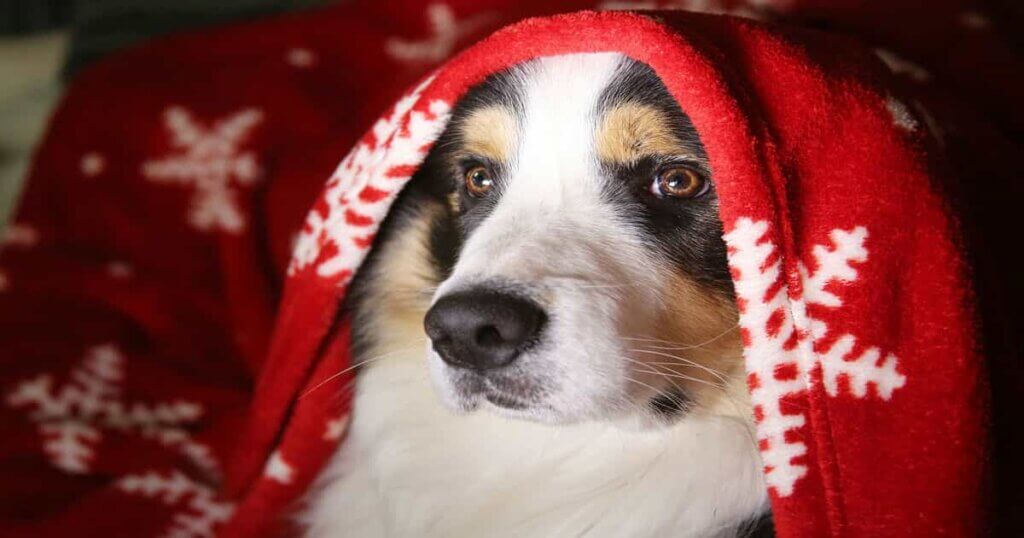Welcome to the fascinating world of the Border Collie, a breed renowned for its intelligence, agility, and unwavering loyalty. This medium-sized herding dog, originating from the British Isles, is not just a pet but a true companion, embodying a mix of beauty, brains, and boundless energy. Whether you’re considering “Adopting a Border Collie” or already a proud owner, understanding the “Border Collie dog breed intelligence” and “Border Collie lifespan and aging” is essential.
In this comprehensive guide, we’ll explore the “Border Collie health issues,” provide effective “Border Collie training tips,” and delve into the “Best diet for Border Collies.” Our journey will cover every aspect of the Border Collie’s life, from “Border Collie puppy care essentials” to their unique “Social needs.” Get ready to discover what makes Border Collies extraordinary and how you can foster a rewarding relationship with this remarkable breed.

Table of Contents
Introduction Of Border collie dog breed
Border collie dogs are herding dogs that were primarily bred to herd sheep, but they are capable of doing any type of herding task.
Border Collies have boundless energy, determination, and working drive, making them excellent herding dogs. Many people believe that the Border Collie is the perfect herding dog.
This breed knows how to get the job done better than most, thanks to their well-muscled and compact bodies, unique agility and speed, and intelligence and focus.
They also make great family pet dogs. When they aren’t being workaholics at work, they enjoy snuggling up and playing with their families.
They love showing affection to individuals they care about. This bright, vivacious, and energetic breed is ideal for people looking for a hardworking companion or an adventure companion. They make good watchdogs.
Origin Information about Border Collie:
Origination:
During the 1700s, the Border Collie dog breed originated in the border territory between Scotland and England. They became very popular in English households and farms during the 19th century when Queen Victoria started raising a few of these dogs.
They’re energetic and workaholics, they train easily, so they were perfect for herding sheep. Other collies, such as the bearded collie and Scotch collie, are regarded to be the Border Collie’s ancestors, and some breed historians believe spaniel may have also played a role in their origination.
The appearance of Border Collie:
Height:
A male Border Collie should stand at a height of around 19-22 inches and a female should stand at a height of around 18-20 inches.
Weight Range:
A male Border Collie weighs up to 18-20kgs and a female weighs up to 17-19kgs.
Eyes:
Their eyes are their best feature. They are wide apart, moderate in size, oval in shape, color is mostly brown, and sometimes blue.
Ear:
They have medium-sized pointy ears and they are very upright. They can sense and hear things from far and be alert.
Teeth:
The Border Collie has a full set of strong and sharp teeth.
Nose:
Their nose color varies but they have very well-developed nostrils.
Forequarters:
Their shoulders are well laid back and the elbows are adjoining to the body.
Head:
Their heads almost look like a triangle from the front and are a little smaller than their bodies.
Body Length:
Their bodies are significantly larger than their heights.
Tail:
Border Collies naturally have long feathered flowing tails that extend out of their backsides and slightly upwards.
Colors:
They come in many colors: black with or without white, red and white, solid color, bi-color, tri-color, merle, and sable.
Coat:
They have two types of coats: rough and smooth. Both are double coats, with a coarser external coat and a delicate undercoat. Extreme reach is the medium period with padding at the legs, chest, and belly.
Club Recognition of Border Collie :
The Border Collie was recognized by the United Kennel Club on January 1, 1961. There is a club called The Border Collie
Club of Great Britain, their inaugural meeting of the Border Collie Club of Great Britain took place on the 6th of August, 1973. Despite their inclusion in the Miscellaneous class in 1955, the Border Collie wasn’t recognized by the American Kennel Club(AKC) until 1995.
Characteristics of Border Collie
Personality:
Border Collies are energetic, industrious dogs who are very well suited in the country area. These dogs can grow unhappy and vicious if they are confined without activity and company.

They are protective of their families and territories because of their herding tendencies. Border Collies are very loyal to their owners, and this protectiveness can lead to aggression.
They’ll keep an eye out for the family’s children. Although they get along well with youngsters and other pets with whom they have grown up, they can be discreet and even irritable with strangers, chewing at the heels, in the same manner, they would if shearing sheep.
Energy Level:
When it comes to this breed’s energy level, calling them “energetic” is an understatement. In the arena of herding and other dog sports, their intuitive wish to work makes them great stars.
They enjoy being active, and it is critical for their health and happiness that they have plenty of opportunities to do so every day. ensuring proper Border collies Food and nutrition is necessary for that.
This breed is ideal for folks who enjoy being physically active. However, if you’re looking for a dog that likes to lie around all day, you could be disappointed with this breed. While the Border Collie enjoys cuddling up with his family after a long day at work, he needs an outlet for his pent-up energy before he’s ready to take a seat.
Prepare to dedicate a great quantity of time and effort to channel your dog’s unlimited energy and mental motivation.
Health Problems Of Border Collie :
Border Collies are mostly a healthy breed with an approximate life span of 12-15 years. One of the most common health problems many Border Collies face is food allergies.

Food allergies in Border Collies might appear as a dry, itchy coat or an upset stomach. Also, this breed is prone to many minor health problems such as Epilepsy, which damages the brain and spine, progressive retinal atrophy, osteochondritis dissecans, lens luxation, hypothyroidism, patent ductus arteriosus (PDA), and Collie eye anomaly (CEA), and major ailments like canine hip dysplasia (CHD). They can also be diabetic.
Other Behaviors of Border Collie
Border Collies have a very low tendency to drool and a very low tendency to snore. They bark a lot and they are sometimes seen digging the ground but their digging tendency is fairly low than other breeds. They also tend to run off to moving vehicles and chase them which can be very dangerous.
Needs of Border Collie
Although a Border Collie puppy or adult dog may be clever, they still require human assistance. Every breed of dog has its own needs from human beings. Some of these needs are so crucial that without them, keeping Border Collies healthy and alive would not be possible.
Exercising Needs of Border Collie:
Border Collies require a constant regimen that includes outside work and a lot of exercises and human connection.

Border Collies that do herding need to exercise at least 40 minutes a day and typically need around 2 hours of exercise a day if they’re kept in a typical household environment. There are many types of exercises that they can do: Walking and running; Outdoor Hiking; Herding trials; Agility training; Swimming; games like fetch or Frisbee etc.
Border Collie Obedience Training Needs:
Every Border Collie dog needs sufficient obedience training and direction, which is difficult to do due to their over-enthusiastic natures, and it takes time to train them properly. Even though they learn quickly, they must be taught what is acceptable and unacceptable conduct, which is impossible for the owner to do without training. For example, if you leave a Border Collie in a room alone for a few hours with a poor behavior problem and no obedience training, you will end up in a ruined room.
Socializing Needs:
Border Collies need to learn how to socialize otherwise, it is very difficult to control this breed of dog especially when they interact with people and other dogs. No matter if it is a puppy or an old dog, it is important to learn how he should behave with people and other dogs around. The more they socialize the better as it will make them less aggressive.
Environmental Needs:
Both hot and cold regions suit these adaptive dogs. Even in the dead of winter, a Border Collie can have a good time. Border Collies happily plod through the snow, while others ferociously herded sheep and animals.
In the winter, their thick double coat keeps them warm. But in the summer, the coat sheds to allow them to cool down.
In summer, if it’s hot outside, and they’re spending long days in the field in a harsh climate, it will be bad for their health. Also as mentioned before, they fit better in the county home environment than the city. They are known to be one of the most active breeds; they love free space where they can run freely and be themselves.
Grooming Needs of Border Collies
Their grooming requirements are very standard. They shed all year but their coats shed the most during spring and summer.
So, you need to clean regularly. A Border Collie’s coat is designed for heavy-duty work, so they don’t need to be bathed very often unless they get quite dirty, which can happen considering how much they enjoy being outside.
When they are wet, having a towel by the door is needed to dry their feet and undercoat. Brushing their coat and tail daily can help get knots and hardened dirt out of their coat and tail quickly and effectively. Consider these brushing sessions to be more of a bonding experience than work.
Border Collie Dog Breed Intelligence
The intelligence of the Border Collie breed is legendary. Known as one of the smartest dog breeds, they exhibit an astonishing ability to learn, reason, and solve problems. This high “Border Collie intelligence level” isn’t just about being good at “Herding instincts of Border Collies”; it extends to remarkable adaptability and quick learning in obedience and “Border Collie agility training.” Their keen intelligence, however, also brings “Training challenges with Border Collies.” It requires consistent mental stimulation to prevent boredom and destructive behavior. Engaging in activities that fulfill their “Border Collie activity levels,” such as agility, obedience, or even puzzle games, is crucial.
Owners should focus on “Understanding Border Collie behavior” to provide appropriate mental challenges. This breed thrives on learning new tasks, making “Border Collie training tips” an essential aspect of their care. Incorporating training into daily routines helps in keeping their intelligent minds engaged. This high intelligence also means that “Border Collie puppy care essentials” should include early socialization and basic training to harness their potential. When adopting, the “Adopting a Border Collie guide” can provide insights into what to expect regarding their intellectual needs.
Intelligent, responsive, and eager to please, Border Collies make excellent companions for those who can meet their intellectual and physical needs. Their intelligence is a double-edged sword; it’s what makes them such outstanding pets but also what can make them a challenge for unprepared owners. Understanding and nurturing their intelligence is key to a happy and fulfilling relationship with a Border Collie.
Border Collie Dog Breed Lifespan and Aging
The “Border Collie lifespan and aging” is a crucial aspect for potential and current owners. These dogs generally enjoy a long life, often living up to 12-15 years, sometimes even longer. However, understanding the changes that come with aging is essential for maintaining their quality of life. As they age, their “Border Collie exercise requirements” may decrease, and their diet may need adjustment to suit their slowing metabolism, aligning with the “Best diet for Border Collies.” Older Border Collies might face age-related health issues, making awareness of “Border Collie health issues” vital.
Caring for a senior Border Collie involves regular veterinary check-ups to monitor for common age-related diseases. Adaptations in their exercise routine, taking into account their “Border Collie activity levels,” can help maintain their health without putting undue strain on their bodies. Additionally, “Border Collie grooming techniques” might need to be adjusted as their coat changes with age.
Adopting a senior Border Collie, as outlined in the “Adopting a Border Collie guide,” can be a rewarding experience, but it’s important to be prepared for their special needs. “Border Collie puppy care essentials” differ greatly from senior care, as puppies have different dietary and exercise requirements. Understanding and accommodating the changing needs of your Border Collie as they age is crucial to ensuring they live a happy, healthy, and comfortable life in their golden years.
Border Collie Dog Breed Health Issues
When it comes to “Border Collie health issues,” prospective and current owners must be well-informed. While Border Collies are generally healthy, they are prone to certain genetic conditions. Being aware of these potential health concerns is a key part of “Understanding Border Collie behavior” and their overall well-being. Common issues include hip dysplasia, eye problems, and epilepsy. Regular veterinary check-ups and being alert to changes in their health or behavior can help in early detection and management of these conditions.
The “Best diet for Border Collies” plays a significant role in preventing and managing health issues. A balanced diet, possibly including “Grain-free options for huskies” if allergies are present, can support their overall health and vitality. Additionally, maintaining an appropriate exercise routine, as per “Border Collie exercise requirements,” helps in keeping them physically fit and can prevent obesity, a contributing factor to many health problems.
Owners looking to adopt should consider these health aspects as detailed in the “Adopting a Border Collie guide.” “Border Collie puppy care essentials” should also include planning for preventive health measures like vaccinations and regular health screenings. Being proactive about their health, understanding the breed’s specific needs, and providing a loving and caring environment can ensure that your Border Collie remains healthy and happy throughout their life.
Border Collie Dog Breed Training Tips
Training a Border Collie requires understanding their unique temperament and intelligence. “Border Collie training tips” often emphasize the importance of starting training early, as outlined in “Border Collie puppy care essentials.” These dogs are quick learners but can develop unwanted behaviors if not properly guided. “Understanding Border Collie behavior” is crucial in tailoring training methods that are effective and engaging for this intelligent breed.
The key to successful training lies in consistency, patience, and positive reinforcement. Given their high “Border Collie intelligence level” and “Border Collie activity levels,” they excel in tasks that challenge both their mind and body. Incorporating “Border Collie agility training” can be an excellent way to provide physical and mental stimulation. However, “Training challenges with Border Collies” include their tendency to get bored easily, so it’s important to keep training sessions varied and interesting.
Owners should also be aware of the “Border Collie exercise requirements” as part of their training regime. Regular exercise helps in managing their energy levels and prevents the development of destructive behaviors. A well-trained Border Collie is a joy to have, capable of incredible feats and deep companionship. However, potential owners should be prepared for the commitment required in training and caring for such an intelligent and active breed, as detailed in the “Adopting a Border Collie guide.”
Border Collie Dog Breed Health and Nutrition
Health and nutrition are intertwined in the care of Border Collies. The “Best diet for Border Collies” is one that supports their high energy levels and keeps them in optimal health. A balanced diet should include high-quality proteins, carbohydrates, fats, vitamins, and minerals. Special attention should be given to “Border Collie puppy care essentials” where nutrition plays a critical role in their growth and development.
Understanding “Border Collie health issues” can guide dietary choices. For instance, dogs prone to joint issues may benefit from diets supplemented with glucosamine and chondroitin. Regular exercise, in line with “Border Collie exercise requirements,” is vital for maintaining a healthy weight and preventing obesity-related health problems.
For owners considering homemade diets, it’s important to ensure that these meet all the “Nutritional needs for huskies.” Consulting a veterinarian or a canine nutritionist can be helpful in this regard. Additionally, being aware of any “Husky food allergies and sensitivities” and adapting the diet accordingly is crucial for their overall well-being.
In summary, a well-planned diet and regular exercise are fundamental in maintaining the health of your Border Collie. By providing the right nutrition and care, you can ensure your Border Collie lives a long, healthy, and happy life.
conclusion
Border Collies are still used to herd sheep on farms all over the world. Although they were mainly used for herding, today they are used as service dogs for police, narcotics, and bomb detection, for search and rescue missions, and also to guide the blind. They make good watchdogs.
They are also very good family pets. A lot of people talk about how hardworking, enthusiastic, and strong they are but a very lesser-known fact about them is how compassionate and loving they are about their people.
Border collies are highly sensitive dogs who appear to have a deep understanding of human emotions. A border collie may be disciplined for inappropriate behavior with just a critical glance. When their people are angry it leaves them in confusion. In very rough and intense situations, they may act out.
To learn more about Border Collie checks out our this Border collie Category page.




